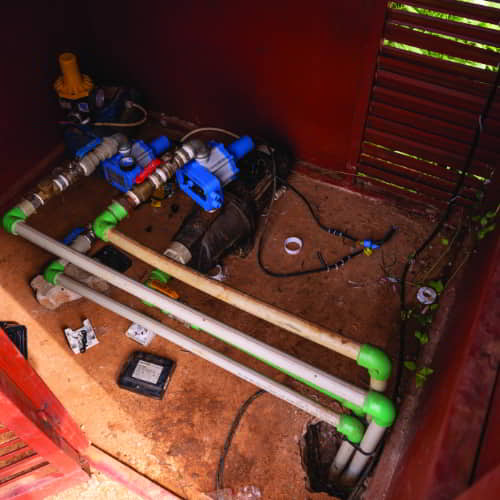Wells in Africa and GFA’s Clean Water Projects
Drought, water scarcity and pollution are all contributing more and more to the water crisis in Africa, so it is becoming increasingly important to provide more clean water solutions like wells in Africa, BioSand water filters, and improved water infrastructure when able, to slow the trend. It may be difficult to understand how anyone could struggle to find enough water on a planet that has 71 percent of its surface covered by it. However, we must remember that 96.5 percent of that water is contained in the oceans and is undrinkable. And of the freshwater on earth, much more is stored in the ground than is available in the world’s rivers and lakes. Though much of the groundwater is within a half mile of the surface, it is much more challenging to collect from underground than from a stream.[1] The words of Samuel Taylor Coleridge’s poem, “The Rime of the Ancient Mariner,” ring true today more than ever: “Water, water, every where, Nor any drop to drink.”[2]
Running out of water might seem like a problem relegated only to undeveloped regions of the world that have no indoor plumbing, but the issue affects big cities too. A 2014 study of the world’s 500 largest cities found that one in four of them were experiencing water stress, including Cape Town in South Africa, Sao Paulo in Brazil, London in England, Tokyo in Japan and Miami in Florida. Over a billion people worldwide lack access to water, and another 2.7 billion experience scarcity for at least one month out of the year. According to UN-endorsed projections, this crisis will only increase as it is expected that the global demand for freshwater will exceed the supply by 40 percent in 2030, thanks to a combination of climate change, human action and population growth.[3]The problem of water scarcity may seem distant—a problem for someone else—but it is impacting people in our own nations, and there is no guarantee that it won’t affect us next. Combating water scarcity is essential for us all.
With such a crisis, many organizations seek ways to tap into the large groundwater supply by providing clean water solutions like water wells in Africa and worldwide. However, as Jamie Skinner of the International Institute for Environment and Development in London puts is, “It is not enough to drill a well and walk away. … In the Menaka region of Mali, 80 percent of wells are dysfunctional. … In Northern Ghana, 58 percent need repair.” In total, an estimated 50,000 recent boreholes, pumps and wells installed with foreign aid are now derelict, defunct and contaminated for want of basic maintenance. That equates to $300 million of investment wasted. The key problems are badly designed wells, poor construction and a lack of maintenance. There is no point in creating a well and passing it over to the local community if they can’t afford or don’t know how to maintain it. It is then nothing more than a temporary aid.[4]
Click here, to read more about this article.
Click here, to read more blogs in Gospel for Asia.Com


Comments
Post a Comment